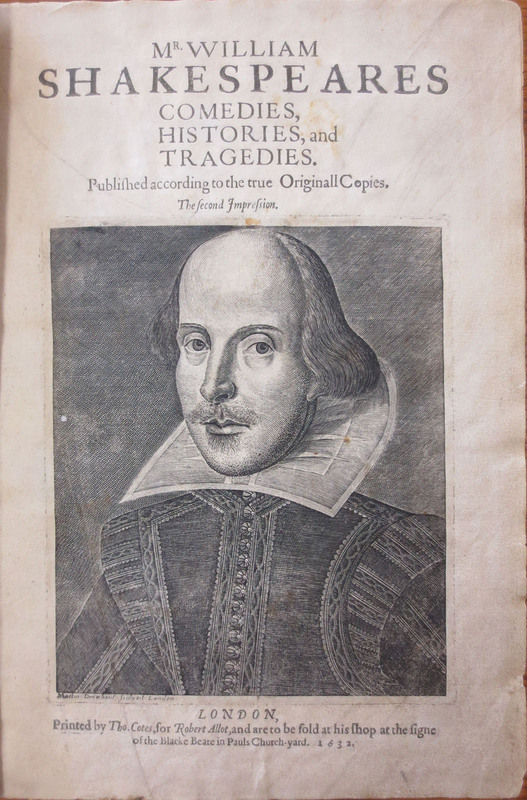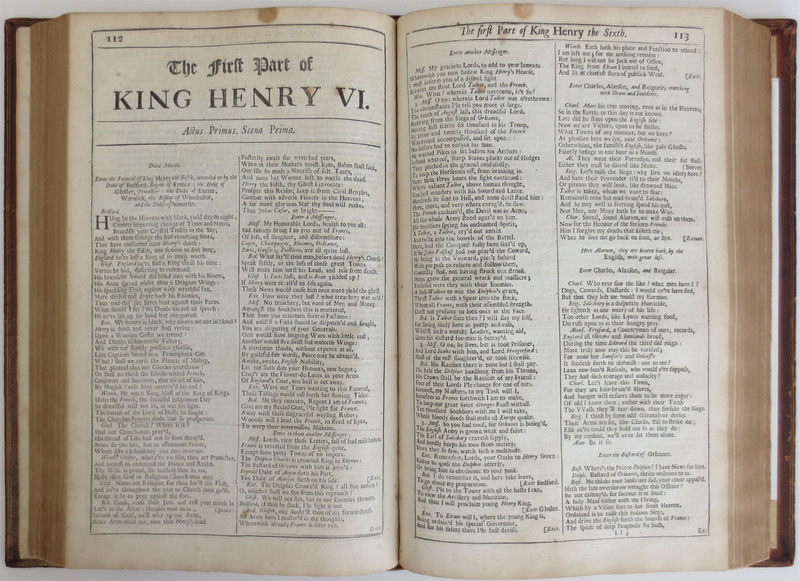The Second and Fourth Folio
Shakespeare, William, 1564-1616.
Mr. William Shakespeares Comedies, Histories, and Tragedies. Published According to the True Originall Copies. The Second Impression.
London: Tho. Cotes for Robert Allot, 1632.
Call Number: (RARE) PR 2751 .A2
Special Collections, Golda Meir Library
The Second Folio of 1632 (F2--the second edition of Shakespeare's works) is basically a reprint of the First Folio. No truly substantive changes occur in it, suggesting that most of the emendations were probably made in the printing house and seen as corrections of errors made there the first time (e.g. faulty lineation, punctuation, spelling, and the like). About 1,000 copies of F2 were printed, of which fewer than 200 are known to exist today. Perhaps the most significant aspect of this edition is that it includes the unsigned "Epitaph on the admirable Dramaticke Poet," which constitutes the first printed English poem by John Milton. It was written while he was a student at Cambridge, probably in 1630.
During Cromwell's Protectorate, plays were prohibited and Shakespeare's Globe Theater destroyed. Shakespeare's popularity, however, was not. Shortly after the Restoration of Charles II to the English throne (1660), the "Third Impression" of the Folio was issued (F3) -- "Published according to the true Original Copies," or so the title page assures the reader. Those who issued F3 could not resist a gimmick: the truly original thing about F3 is that it includes "seven Playes, never before Printed in Folio"! Since only one of these seven is a genuine Shakespearean play (Pericles), it's probably not surprising that no one took credit for readying this text for printing: the "editor" or "editors" of F3 remain a mystery.
Shakespeare, William, 1564-1616.
Mr. William Shakespear's Comedies, Histories, and Tragedies. Published According to the True Original Copies. Unto Which is Added Seven Plays, Never Before Printed in Folio. Fourth Edition.
London: H. Herringman, E. Briwster, R. Bentley, 1685.
Call Number: (RARE) PR 2751 .A4
Special Collections, Golda Meir Library
When the fourth edition of the Folio (F4) was published, the spurious plays remained in the collection. One of the interesting things about UWM's copy of F4 is an inscription that appears on a preliminary leaf. Written in a spidery hand that is probably 17th century, the inscription serves as a will of sorts. The owner of this Folio, one Catherine Handman, bequeaths this object to her minister or his surviving son "when the Angel of Death comes for [her] frail body." Her parting line, "Pray take care of it," gives us a sense not only of the esteem in which Shakespeare's work was held, but of how precious the artifact--the Folio itself--was. If there hadn't been many, many book-owners who felt this way, we would probably not have this original volume to display today.


